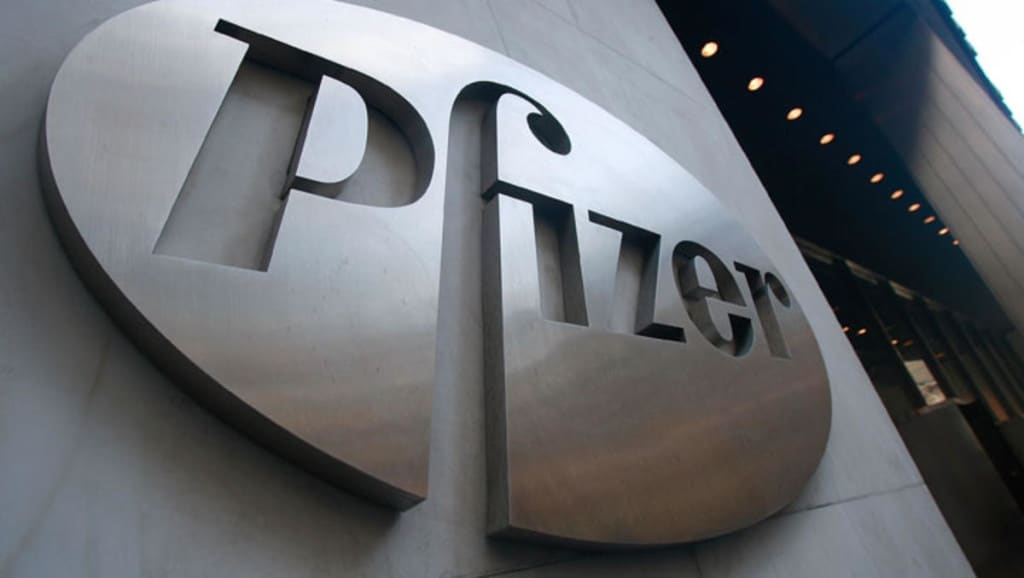Pfizer Inc. believes the markets are yet to give it full credit for its efforts to stay ahead in cancer therapy. Pfizer’s President Liz Barrett says the company has a broad oncology portfolio that is largely ignored. Ms. Barrett made the comments on Monday at the UBS Global Healthcare Conference held in Grand Hyatt New York.
Pfizer has a metastatic breast cancer drug called Ibrance, which has performed well since its launch a year ago. The drug has been administered to 28,000 patients. It is also the first of its kind in 10 years. Barrett says more than 70 percent of the doctors have prescribed it to their patients. This makes Ibrance the anchor drug in its oncology portfolio. However, this fact doesn’t mean that it is the only cancer drug that will drive Pfizer’s growth.
Pfizer Has Other Ignored Growth Drivers
The firm has other growth drivers that the market isn’t aware of. When viewed from a broader angle, Barrett thinks Pfizer’s business is growing steadily.
One of these growth drivers is its partnership with Merck & Co., Inc. to develop avelumab. Avelumab is an anti-PD-1 immuno-oncology therapy. The partnership has helped both companies to improve their cancer research efforts. Barrett noted that the therapy can be used alone or with other treatment options.
The collaboration has also forced the two drug makers to keep each other in check. Barrett described the firm’s oncology strategy as being based on using combination therapies to treat cancer. She believes her firm leads the market with its portfolio of 10 drugs.
Pfizer’s broad cancer drug portfolio is also an advantage when it comes to pricing. This means its vast product range means it can offer prescribing doctors multiple combination therapies at discounted prices.
Near-Term M&A Strategy Expected to Focus on Oncology
Apart from developing its own immuno-oncology therapies, Pfizer is also buying drug firms that focus in this field. Last week, it disclosed that it will buy Anacor Pharmaceuticals Inc. for $5.2 billion in order to build its immunology and inflammation division. The deal saw it add Crisaborole, a promising anti-inflammatory drug that can be used to treat eczema, dermatitis and psoriasis, to its portfolio.
Though Barrett didn’t comment on Pfizer’s M&A strategy in oncology, the company is thought to be interested in Medivation Inc. Medivation develops various cancer drugs and is an highly sought buy due to its impressive range of both early-stage and late-stage cancer drugs.
All in all, Pfizer’s near-term M&A strategy for now appears focus on oncology. During the company’s quarterly earnings call, CEO Ian Read said he wants to boost the company’s innovative business with mature or late-stage products.
Analysts Say Anacor Was Too Expensive
However, analysts think the firm paid too much for Anacor. Close review of the deal shows Pfizer gets only two assets- Crisaborole and Kerydin. Kerydin is a topical anti-fungal treatment that was approved by the FDA in July 2014.
Having been in the market for a while, Kerydin is facing the heat from competing drugs. This fact is evident in Anacor’s revenues: After the FDA approval in 2014, Anacor signed a deal with Sandoz to help market the drug. Peak sales rose to $400 million before dropping to $69.7 million last year. So, Kerydin doesn’t have much promise.
Anacor isn’t selling any other topical anti-inflammatory drugs. However, others are either being discovered or currently on trials. Besides Crisaborole and Kerydin, another asset is AN3365 that is being tested for efficacy against Gram-negative bacteria. This means it won’t be available anytime soon.
Hence, Pfizer’s only shot at getting value for its Anacor buy is Crisaborole. While the drug is yet to be approved until January 2017, it is expected to dominate the market for sometime until competing products line the shelves.
Trusted & Regulated Stock & CFD Brokers
What we like
- 0% Fees on Stocks
- 5000+ Stocks, ETFs and other Markets
- Accepts Paypal Deposits
Min Deposit
$200
Charge per Trade
Zero Commission on real stocks
64 traders signed up today
Visit Now67% of retail investor accounts lose money when trading CFDs with this provider. You should consider whether you can afford to take the high risk of losing your money.
Available Assets
- Total Number of Stocks & Shares5000+
- US Stocks
- German Stocks
- UK Stocks
- European
- ETF Stocks
- IPO
- Funds
- Bonds
- Options
- Futures
- CFDs
- Crypto
Charge per Trade
- FTSE 100 Zero Commission
- NASDAQ Zero Commission
- DAX Zero Commission
- Facebook Zero Commission
- Alphabet Zero Commission
- Tesla Zero Commission
- Apple Zero Commission
- Microsoft Zero Commission
Deposit Method
- Wire Transfer
- Credit Cards
- Bank Account
- Paypall
- Skrill
- Neteller
What we like
- Sign up today and get $5 free
- Fractals Available
- Paypal Available
Min Deposit
$0
Charge per Trade
$1 to $9 PCM
Visit Now
Investing in financial markets carries risk, you have the potential to lose your total investment.
Available Assets
- Total Number of Shares999
- US Stocks
- German Stocks
- UK Stocks
- European Stocks
- EFTs
- IPOs
- Funds
- Bonds
- Options
- Futures
- CFDs
- Crypto
Charge per Trade
- FTSE 100 $1 - $9 per month
- NASDAQ $1 - $9 per month
- DAX $1 - $9 per month
- Facebook $1 - $9 per month
- Alphabet $1 - $9 per month
- Telsa $1 - $9 per month
- Apple $1 - $9 per month
- Microsoft $1 - $9 per month
Deposit Method
- Wire Transfer
- Credit Cards
- Bank Account



